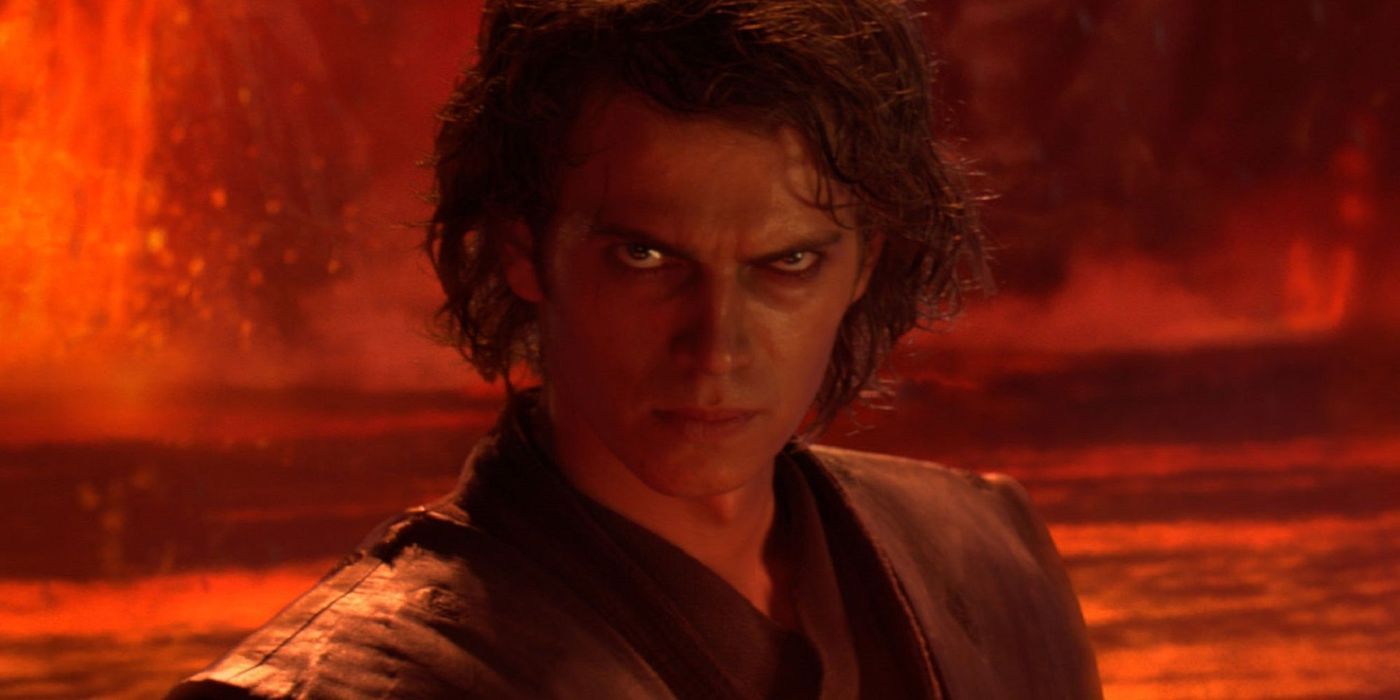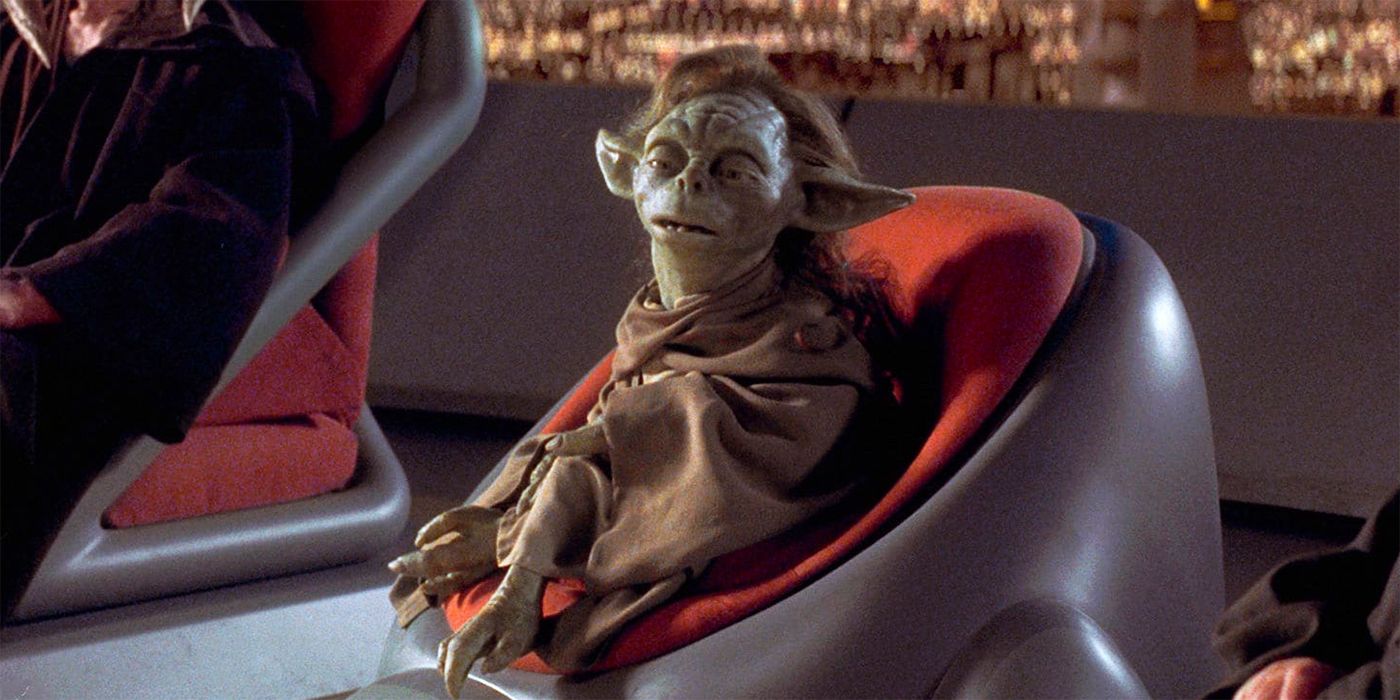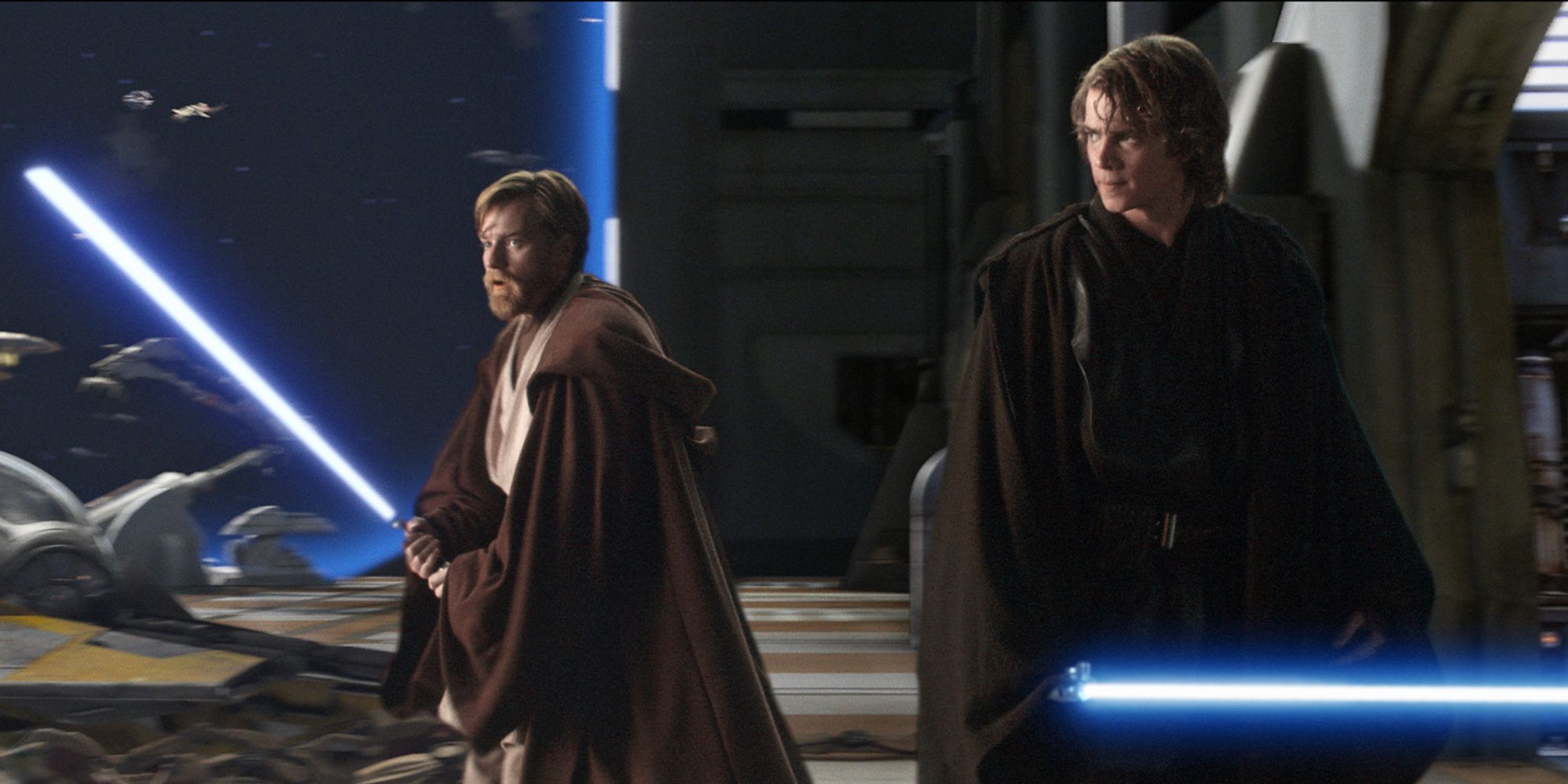While the recent wave of Star Wars content under Disney has its supporters and defenders, nothing was more divisive in its initial release and legacy than the prequel trilogy, including the film Revenge of the Sith. To say that the conversations around the franchise have been contentious would be putting it mildly, as the franchise has always evoked debate that Obi-Wan Kenobi might refer to as “so uncivilized.” There’s certainly a generation that grew up with the story of Anakin Skywalker (Hayden Christensen) and his fall to the dark side, and for many audiences, Revenge of the Sith was a heartbreaking experience to watch for the first time. However, Revenge of the Sith’s impact isn’t just limited to how it reframes the story of Darth Vader; it’s also an eerily prophetic look at the rise of fascism within a corrupted, radicalized political infrastructure.
George Lucas' Satire of American Politics Hasn't Dulled in Decades
It’s always fascinating to notice that despite the overt flaws in the dialogue, story structure, and character development in the prequels, George Lucas’ satire of American politics hadn’t dulled at all since his days as an experimental filmmaker at USC. A young Lucas attended marches and rallies, and in fact his directorial debut THX-1138 was an anti-authoritarian thriller about what happens when a totalitarian police state is given complete control over human interaction and free will. The original Star Wars trilogy was created in response to the Vietnam War; despite wanting to reinvent the science fiction era of Flash Gordon and Buck Rogers, Lucas was also contributing to the story of Apocalypse Now, which would ultimately be directed by his best friend Francis Ford Coppola.
When Lucas began the prequel trilogy, he couldn’t have imagined the cataclysmic world events that would occur in between installments in the series. While there’s a more subtle political subtext to both The Phantom Menace and Attack of the Clones, they were released or well into post-production before 9/11 and the more volatile crisis in the Middle East. Revenge of the Sith was always going to be the darkest chapter in the trilogy, as it would have to end with the corruption of a beloved character, but the allusions to current world events made it even more shocking. The first PG-13 Star Wars movie may contain some of the saga’s most exciting spectacle, but it’s also eerily precinct of the rise of fascism, radicalization, and militarization that would emerge in both the Bush and Trump eras.
The Star Wars Prequels Explore a Multitude of Genres
With each installment in the prequel trilogy, George Lucas reframed a specific genre with an edge of satire to contextualize the concept of victory; it’s often that the true victors are the ones whose success isn’t immediately obvious. In The Phantom Menace, there’s a fairy tale nature to seeing a young leader like Padme (Natalie Portman) unite her people with a native species to protect their home planet, and Anakin’s emergence from slavery to become a great hero is similarly inspirational. Even if the film ends with a lavish ceremony celebrating the Naboo soldiers, the Gungan warriors, and the Jedi, their victory didn’t really mean anything in the long run; Padme’s crisis was ultimately just a tool used by Palpatine (Ian McDiarmid) to advance his position in the Senate.
In Attack of the Clones, Lucas casts an older Anakin and Padme in a distorted Romeo and Juliet style affair where they are at their emotional peaks; considering that Anakin was raised within the constraints of the Jedi Order and Padme has only known high society, it makes sense that they would both be a little bit melodramatic (and that Lucas was perhaps being a little more satirical with the “I hate sand” line than he’s been given credit for). Yet this Romeo and Juliet love affair is caught within the backdrop of the rise of militarization and industrialization, where fear is rampant and the galaxy can’t protect its leaders from assassins. It almost feels like a warning; if we continue to stock up on weaponry and dedicate time to creating warriors, we’ll be destined to use them.
Unfortunately, in between Attack of the Clones’ 2002 release and Revenge of the Sith’s 2005 debut, that nightmare became true as America was caught within another war on a search for weapons of mass destruction. If the political commentary within the first two films is more subtle, Lucas seemingly had no other choice than to address his concerns head on with what was initially the final film in his saga. It seemed like even at the time, some critics noticed his intentionality. President Bush’s line “either you are with us, or you are with the terrorists” invited immediate comparisons to Anakin’s remark to Obi-Wan that “if you’re not with me, then you’re my enemy," - a key moment in their relationship.
'Revenge of the Sith' Highlights the Collapse of Democracy
The first half of Revenge of the Sith allowed Lucas to address all the issues that would emerge when a civilization was at war. There’s a constant sense of fear and anxiety, innocent people like the Wookiees and the citizens of Utapau are forced to hide on their home planets, cities are destroyed on a massive scale, and even the Jedi must forsake their values in order to become generals and military leaders. It’s an eerie status quo, and even the most wondrous CGI space battles can’t distract from the fact that lives are being lost at every moment. However, Lucas digs in further than the reality of war to address what sorts of ethically-compromising solutions would be needed to end it.
As the Jedi are called away to protect the galaxy, Palpatine has amassed more power in the Senate thanks to the emergency powers granted to him by Jar Jar Binks (Ahmed Best) in Attack of the Clones. He’s now acting as the sole decision maker in military decisions, extending the war until all of the Separatists are eliminated and he will have no potential rivals. By extending his terms in office, Palpatine has allowed his radicalized supporters to become more insistent that he stay past his term; it’s a process that anyone watching the last few American Presidential Elections might be familiar with.
By the end, Lucas utilizes the freedom of the PG-13 rating to include some particularly haunting imagery; there’s violence in educational institutions, environmental destruction, heinous war crimes, assaults on indigenous races, and a completely militarized police force. This may have felt like a warning in 2005, but in 2022, it’s sadly reflective of the time in between. Perhaps the most telling line in Revenge of the Sith (a film not always praised for its dialogue) comes at the very end. “So this is how liberty dies,” Padme reflects. “With thunderous applause.” Now, who wasn’t thinking that in November 2016?



